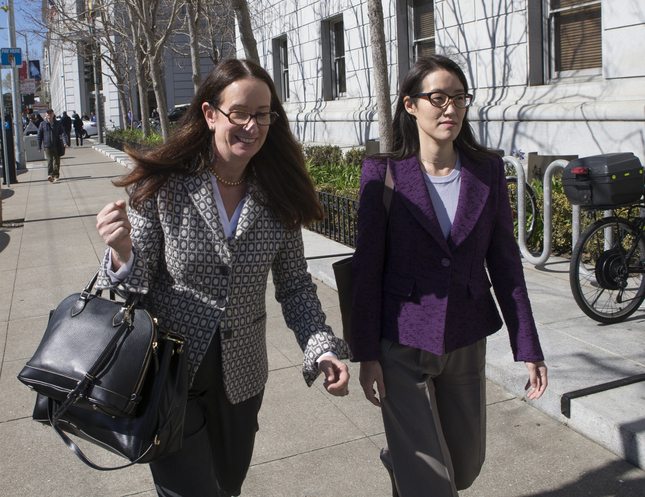By Michelle Quinn
San Jose Mercury News.
Finally it is over. Ellen Pao is “moving on,” as she puts it.
And so can we, right?
Well, no. It’s not over.
The issue of women, minorities and tech, which Pao highlighted in her discrimination trial, isn’t going away.
Sure, I’m relieved not to delve again into the details of Pao’s claim against Kleiner Perkins Caufield & Byers, the venture firm where she worked as a partner. The all-male ski trip. The all-male dinner. Private plane rides where inappropriate comments were allegedly made.
Since a jury ruled against her in March, we have been waiting to see if Pao would appeal the decision.
I argued she shouldn’t. While Pao shined a bright light on sexism in venture capitalism, her case wasn’t convincing to most jurors, or to me.
I’m glad she is not appealing but also happy to hear the former interim CEO of Reddit plans to stick around.
When it comes to women and minorities in the tech industry, as she wrote in a post for the news site Recode, she will continue “moving these issues forward by writing, investing and working in the technology industry.”
At Reddit, Pao was someone to watch as she struggled to create better rules for engagement and tried to address pay disparity.
Pao is a needed presence on the tech scene, a dissident of sorts, who has worked on the inside but knows what it is like for outsiders.
Yes, it’s hard to take a step in Silicon Valley without hearing about tech and diversity. In San Francisco this weekend, about 300 people in the industry will gather at the first ever Tech Inclusion Conference to talk about “solutions,” as Wayne Sutton, one of the event’s co-founders and a serial entrepreneur, told me.
But Ellen Pao stands apart. She highlighted for a generation of women that the slights can add up to make someone’s future less bright.
“Ellen, she has put her life on the line and made tremendous sacrifices,” Sutton said. “Her legacy is to stand up for what is right. That’s a priceless contribution.”
In her statement announcing that she wasn’t appealing her case, Pao listed what she considered numerous unfair impediments to her case and ways she didn’t get a fair shake, without acknowledging any of the many weaknesses in her own claim.
The legal system was stacked against her in numerous ways, she wrote, leading Pao to conclude that “the courts do not provide a level playing field.”
And it wasn’t fair that Kleiner had more resources to pay lawyers, experts, jury consultants and public relations help, she wrote. Unlike Kleiner, she said, she didn’t buy deposition videos, full court transcripts or daily access to trial testimony.
One might ask, “And what did you expect?” A civil trial isn’t a level playing field. She had the option of recouping some of what she claimed were her damages if she had settled ahead of time.
But some of Pao’s criticism rang true. Chief among them is that many businesses, where women and minorities are just a fraction of management, are ill equipped to address discrimination and harassment problems as they arrive.
“Human resources is a company-oriented function, when you can find it at all,” she wrote. Companies should take note and create ways to address and measure discrimination, she said.
And she made a poignant appeal for Silicon Valley to be open to changing its culture.
To employers, she wrote, “please don’t try to silence employees who raise discrimination and harassment concerns. Instead allow balanced and complete perspectives to come out publicly so we can all learn and improve.”
I’m eager to see what Pao does next as a business person and tech investor.
But more important, when it comes to gender, race and ethnicity in tech, Pao isn’t going to stop talking.
___
ABOUT THE WRITER
Michelle Quinn is a business columnist for the San Jose Mercury News.














































































































































































































































































































































































